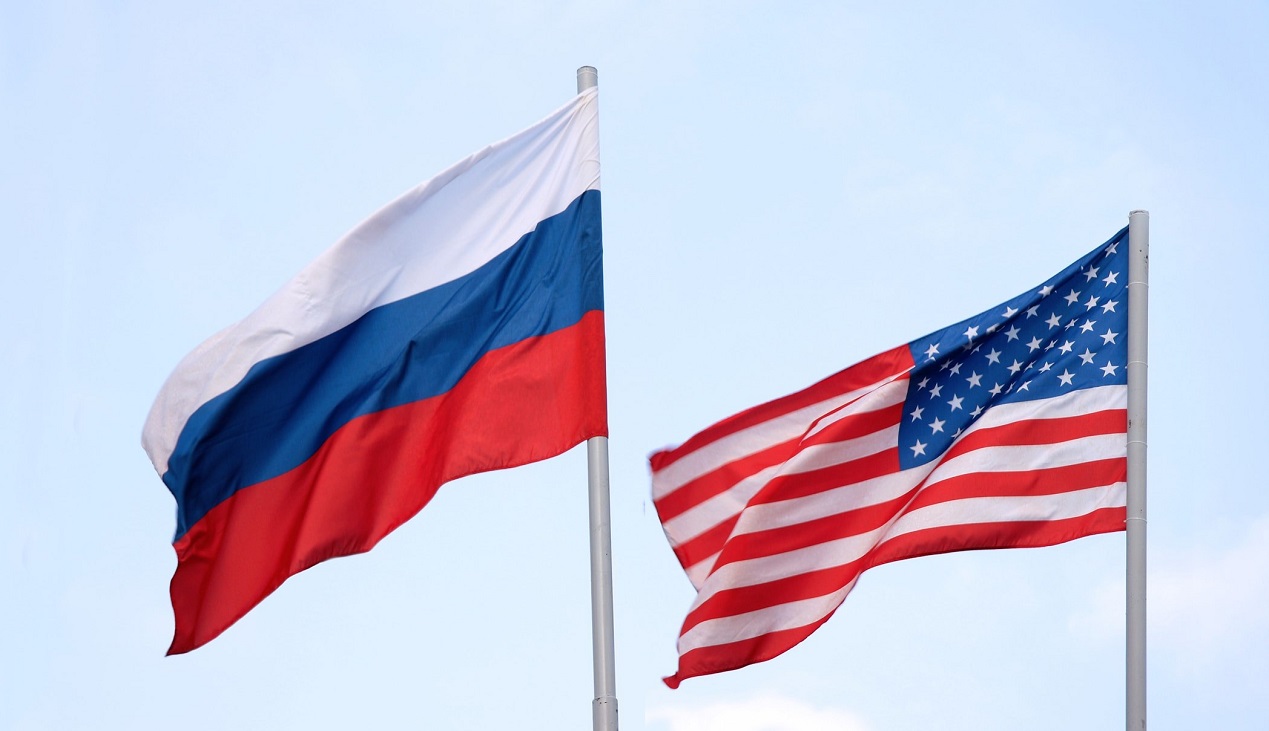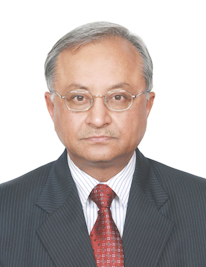In the midst of shifting global strategic equations, the Biden administration would do well to have a fresh look and properly prioritize the present and future challenges to US interests, power and influence. In the emerging order, a candid dialogue between While House and Kremlin is required and would be of far reaching global strategic consequences.
Putin’s Russia had stood firmly with United States allowing transit to US planes for their riposte against Taliban in Afghanistan after the terror attacks of September 2001. But under the Neocon ideology of promotion of democracy and expanding NATO membership towards Russia’s borders, the US-Russia relations soon started slipping on a course of mistrust and confrontation.
The Biden administration has deep rooted suspicion of Putin’s Russia founded on their belief that the Russia origin leaks of Candidate Hillary Clinton’s emails led to her defeat in the 2016 Presidential election and President Donald Trump’s perceived softness towards President Vladimir Putin. Recent allegations of cyber attacks on US agencies emanating from Russia and the poisoning and sentencing of prominent Russian opposition leader Alexei Navalny have further hardened US attitude.
In the comments on Russia by President Joe Biden there is an emphasis on the so-called ‘aggressive’ behaviour of Russia. This a questionable accusation and needs to be analyzed and countered by countries like India which wish US-Russia differences to narrow rather than widen further.
In an article in Foreign Affairs in March 2020 Candidate Joe Biden wrote that “ ---to counter Russian aggression we must keep the (NATOs) military capabilities sharp--.”In his major foreign policy speech delivered at the Department of State on 4 February President Biden declared that “---the days of the US rolling over in the face of Russia’s aggressive actions---are over.”
In the article in Foreign Affairs, Candidate Biden had harsh words for Russia stating that “We must impose real costs on Russia for its violation of international norms and stand with Russian civil society, which has bravely stood up time and again against President Vladimir Putin’s kleptrocratic authoritarian system.”
The US strategic policy makers need to critically reexamine the neocon narrative of an ‘aggressive Russia’ for which they cite as evidence the Russian intervention in Georgia and Ukraine. A non-partisan review of events would lead to the conclusion that, in fact, since the beginning of Neocon dominance of US foreign policy on the coat tails of President George W. Bush in 2001, it was US and NATO who had an aggressive and hostile stance towards Russia gravely threatening its security.
The disintegration of the mighty Soviet Union and emergence of 15 new Republics was peaceful as the wise US President George HW Bush had promised to the Gorbachev led USSR that the West would not jeopardize Russian security and would not expand NATO frontiers towards Russia. But this promise was broken when Poland and Hungary were admitted to NATO in 1999. And the real aggression against Russian security was plotted with the ascendency of neocons under President George W Bush. Reversing his father’s sage policy, at the NATO summit in Bucharest in April 2008 President Bush campaigned for giving NATO membership to Ukraine and Georgia. Germany and France had reservations and correctly perceived it as an unnecessary offence to Russia. But NATO decided to open a route to their admission in NATO ignoring President Putin’s warning that NATO’s expansion towards Russia ‘would be taken in Russia as a direct threat to its security.’
Whatever the Western analysts may say, Russia has a robust claim over Crimean Peninsula which became part of the Czarist Russia in 1783. After the Soviet revolution of 1917, Crimea became part of the Russian Federation in the Soviet Union. Crimea is of great strategic importance for Russia’s presence in the Black Sea. Moreover, more than 65% of the Crimean population is of Russian ethnicity. However, for unclear reasons the then First Secretary of the Soviet Communist Party Nikita Khrushchev, who grew up at Russia-Ukraine border, transferred Crimea from Russian SSR to Ukraine SSR in 1954. In fact, in 1992 the Supreme Soviet of Russia questioned the constitutionality of the transfer, accusing Khrushchev of treason against the Russian people.
It may also be noted that US agencies meddled directly in the internal politics of Ukraine and were instrumental in the ouster of Russia leaning Ukraine President Viktor Yanukovych in 2014. Leaked phone calls of the then US Assistant Secretary of State Victoria Nuland and the US Ambassador at Kiev reveal the extent of direct American interference in the internal political tussle in Ukraine. The new Ukraine President’s ill-advised policy to marginalize Russian language wantonly provoked Russia. This was deeply resented also by the people of Donbass where more than 70% of the population is Russian speaking. Their suppression by Ukrainian nationalists led to their revolt inviting Russian intervention.
For Georgia also the history is similar. The naïve Georgian President Mikheil Saakashvili was egged on in 2008 by the neocons to seek membership of NATO and directly challenge Putin’s Russia. Stung by this, Russia exploited the nationalistic and anti-Georgian sentiments of Ossetians and Abkhazians to help South Ossetia and Abkhazia declare independence in 2008 after a short war in which Georgians were trounced by the Russian army. The moral of the story is that small countries should be sensitive to the security concerns of their powerful neighbours.
US as well as the sober members of NATO need to reassess and realize that Russia is no longer an ideology driven state posing a threat to other countries. Putin’s Russia is a state driven by security concerns-both internal and external. Many new members of NATO neither have any vision nor interest beyond their own borders. US must look at the future and not be a prisoner of the past.
In interactions with foreign think tanks Indian experts need to robustly question the false Western narrative of an aggressive Russia.
US is a power with abiding global interests and concerns. In his Foreign Affairs article Candidate Biden said “China represents a special challenge---China is playing the long game by extending its global reach, promoting its own political model, and investing in the technologies of the future.” In his 4 February statement President Biden clearly stated “We will confront China’s economic abuses; counter its aggressive, coercive action; to push back on China’s attack on human rights, intellectual property and global governance.” At his Senate confirmation hearings, the new Secretary of State Antony Blinken said “There is no doubt that (China) poses the most significant challenge of any nation-state in the world for the United States.”
It is abundantly clear that the real ‘aggressive’ power at present and for the future is China with its coercive and expansionist actions in South China Sea, border with India in Ladakh, Hong Kong and Taiwan. Biden administration needs to shake off its prejudices, not be a prisoner of the past and realistically assess its most potent challenger which is undoubtedly China.
Growing antagonism between US and Russia poses grave strategic challenges for India’s strategic calculations. US is our ‘global strategic partner’ and Russia is ‘special and privileged strategic partner’. There are areas where Biden administration could seek common ground with Russia e.g. nuclear arms control, JCPOA with Iran and defeating ISIL in Syria and Iraq. In this scenario India is well situated to play the role of a bridge between Russia and US.
US-RUSSIA RELATIONS ON A SLIPPERRY SLOPE
The fraught relationship between United States and Russia has come under further strain after the alleged poisoning and recent sentencing of Russian prominent opposition leader Alexei Navalny.
On 4th February, President Joe Biden, in his first articulation of foreign policy after assuming office, had some harsh words for President Putin. President Biden “made it clear that the days of the US rolling over in the face of Russia’s aggressive actions –interfering with our elections, cyber-attacks, poisoning its citizens – are over”. Publicly castigated Russia stating “The politically motivated jailing of Alexei Navalny President Biden cautioned Russia that US “will not hesitate to raise the cost on Russia” alluding to possible more sanctions against Russia.
Without mincing words and ignoring diplomatic niceties, President Biden publicly castigated Russia stating “The politically motivated jailing of Alexei Navalny and the Russian efforts to suppress freedom of expressions and peaceful assembly are a matter of deep concern . He has been targeted for exposing corruption. He should be released immediately and without condition.”
On 2nd February the new Secretary of State, Anthony Blinken tweeted after Navalny was sentenced to more than two years in prison on rather flimsy charges that “We reiterate our call for the Russian government to immediately and unconditionally release Mr. Navalny, as well as hundreds of other Russian citizens wrongfully detained in recent weeks for exercising the rights.”
Such public criticism is likely to deeply offend President Putin, the strong leader of a proud country. Russia would be loath to taking any action under outside pressure and the chances of the Russian state showing any leniency towards the high profile Russian dissident may have vanished.
Besides the persecution of Navalny, the Biden administration takes office with a deep rooted suspicion towards Putin’s Russia
(The paper is the author’s individual scholastic articulation. The author certifies that the article/paper is original in content, unpublished and it has not been submitted for publication/web upload elsewhere, and that the facts and figures quoted are duly referenced, as needed, and are believed to be correct). (The paper does not necessarily represent the organisational stance... More >>
Image Source: https://s3.us-east-1.amazonaws.com/files.cnas.org/title/Russia-Commentaries-Getty-Hero.jpg?mtime=20190117111200&focal=none











Post new comment